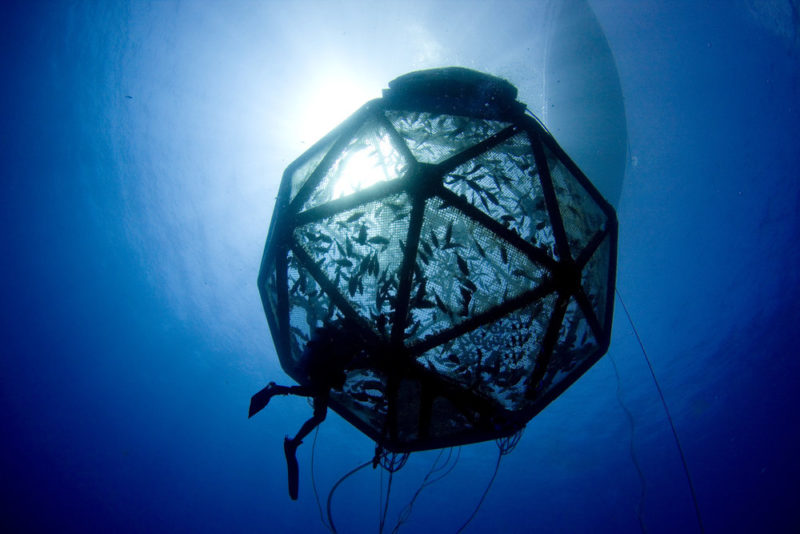The Trump administration executive order on aquaculture and fisheries is raising hopes among some commercial fishing advocates to roll back what they view as excessive regulation.
But the statement’s strong emphasis on streamlining the permit process for ocean aquaculture alarms opponents, who won a 2018 federal court decision in Louisiana that said NOAA lacked Congressional authority to regulate aquaculture.
The “Executive Order on Promoting American Seafood Competitiveness and Economic Growth” directs federal agencies to “identify and remove unnecessary regulatory barriers restricting American fishermen and aquaculture producers” and “facilitate aquaculture projects through regulatory transparency and long-term strategic planning.”
The document has other promises to U.S. seafood producers, especially in seeking fair trade and competition with imported seafood — including to hold imports to the same food-safety standards required for domestic products.
Chris Oliver, the assistant NOAA administrator for fisheries, said in a statement that a new Seafood Trade Task Force will “develop a comprehensive interagency seafood trade strategy. The strategy will identify opportunities to improve access to foreign markets through trade policy and negotiations; resolve technical barriers to U.S. seafood exports; and otherwise support fair market access for U.S. seafood products.”
“As we all know, the 2020 covid-19 crisis has created a turning point in the way the seafood industry does business,” said Oliver. “In addition to other efforts and financial support, this executive order and the funding available through the CARES Act creates an exciting new opportunity to address long-term challenges to expanding the domestic seafood sector.”
Fishing advocacy groups hastened to praise the White House order — and press their own specific issues to be considered.
"Commercial fishermen and their friends have been raising concerns about the overregulation of the industry for years,” said Ryan Mulvey, a lawyer with the free-market Cause for Action Institute, which is suing NOAA to overturn observer requirements on Northeast herring vessels. “But those concerns have mostly fallen on deaf ears. Environmental interest groups and bad science have captured federal regulators and helped to push through regulations that go far beyond what Congress ever intended the administrative state to implement.
But foes of offshore aquaculture portrayed the executive order as dangling carrots to fishermen while granting advantage to fish farm developers.
The order “to streamline offshore aquaculture permitting and gut other protective regulatory processes… threatens our ocean ecosystem, local fishing communities and coastal economies,” according to a statement from the Don’t Cage Our Ocean Coalition, comprised of environmental, food safety and fishing groups opposed to open water pen culture.
“Instead of supporting the corporate takeover of our oceans while they hope we aren’t paying attention, the president should be focusing on providing immediate support to fishermen and small businesses suffering from the financial impacts of the pandemic,” said Rosanna Marie Neil, policy counsel for Northwest Atlantic Marine Alliance, which last week organized a call for Congress and NOAA to undertake an additional $1.5 billion in support for small- and medium-sized seafood businesses.
The Northeast-based Fisheries Survival Fund said it wants to see fishing grounds on the northern edge of Georges Bank opened up.
“These grounds have been closed for nearly 30 years, at the cost of billions of dollars in lost revenue,” according to a statement from the group. “The closures have long been unnecessary for the conservation of the species in the area, making them a prime candidate for reform under this order.”
The Fisheries Survival Fund also wants the administration to stop the Bureau of Ocean Energy Management from accepting unsolicited bids for offshore wind energy development. Those proposals from wind developers have been a first step toward BOEM designating new wind energy areas, with 15 now in various stages of planning off the East Coast, and unsolicited bids now are being pitched for the California coast.
“This policy is poorly thought out, and is an unnecessary threat to the seafood industry,” the group contended. “Eliminating it and similar policies will help meet the administration’s goal of promoting local seafood and securing our food supply chain.”







